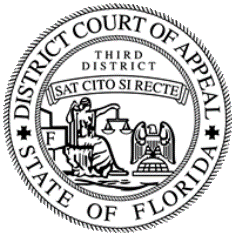 The Florida Third District Court of Appeal recently reversed a trial judge’s refusal to admit a loan payment history into evidence, holding that the foreclosing mortgagee properly demonstrated that the payment history was a business record, even though its witness started working for the mortgagee in 2012 and the payment history included information since 2005.
The Florida Third District Court of Appeal recently reversed a trial judge’s refusal to admit a loan payment history into evidence, holding that the foreclosing mortgagee properly demonstrated that the payment history was a business record, even though its witness started working for the mortgagee in 2012 and the payment history included information since 2005.
A copy of the opinion is available at: http://www.3dca.flcourts.org/Opinions/3D13-0910.pdf
The mortgagee started servicing the loan in 2005. The borrowers defaulted in 2009 and the mortgagee sued to foreclose.
At trial, the mortgagee called a “mortgage resolution associate,” who had worked at the mortgagee only since 2012, who testified that per the bank’s policies and procedures, the person with most knowledge of a loan payment recorded the payment entry in its computerized record systems at or near the time the payment was received, that such information was kept as part of the mortgagee’s ordinary course of business, and that after reviewing the loan payment history, she could confirm the accuracy of the payment entries.
The borrowers objected to the loan payment history on the basis that the mortgagee’s witness was not qualified to testify about the bank’s policies and procedures prior to 2012 when she started working there.
The trial judge sustained the objection, and the mortgagee called the husband borrower to the stand, who admitted that the last payment was made in 2009, but was not sure about the amount owed on the loan. At the close of the mortgagee’s case in chief, the trial judge entered final judgment for the borrowers. The mortgagee appealed.
On appeal, the Appellate Court reviewed the trial court’s interpretation of the statutory business records exception de novo, pointing out that under Florida law, in order to make a prima facie case, a foreclosing plaintiff must show (1) an agreement; (2) a default; (3) an acceleration of the debt; and (4) the amount due.
Next, the Appellate Court examined section 90.803(6) of the Florida Evidence Code, which codifies the business records exception to the rule against hearsay, requiring the proponent to prove that the business record being offered (1) was made at or near the time of the event; (2) was made by or from information transmitted by a person with knowledge; (3) was kept in the ordinary course of a regularly conducted business activity; and (4) it was the regular practice of the business to make such a record.
The Third District cited a decision one of its sister courts, the Fourth District Court of Appeals, which clarified that “[w]hile it is not necessary to call the individual who prepared the document, the witness through whom a document is being offered must be able to show each of the requirements for establishing a proper foundation.”
Disagreeing with the trial court’s interpretation of the statute, the Appellate Court held that the exception does not require that the witness called to lay the foundation be employed by the business at the time the record is made, so long as he or she understands how the recordkeeping system works.
Although the “mortgage resolution associate” was not employed by the mortgagee when all of the payment entries were made into the mortgage’s computerized record keeping system, the Appellate Court noted that her testimony showed that she had personal knowledge of and understood how the system worked.
Accordingly, the Appellate Court held that the mortgagee established the necessary foundation to admit the loan payment history into evidence. The trial court’s ruling was reversed, and the case remanded for a new trial.

